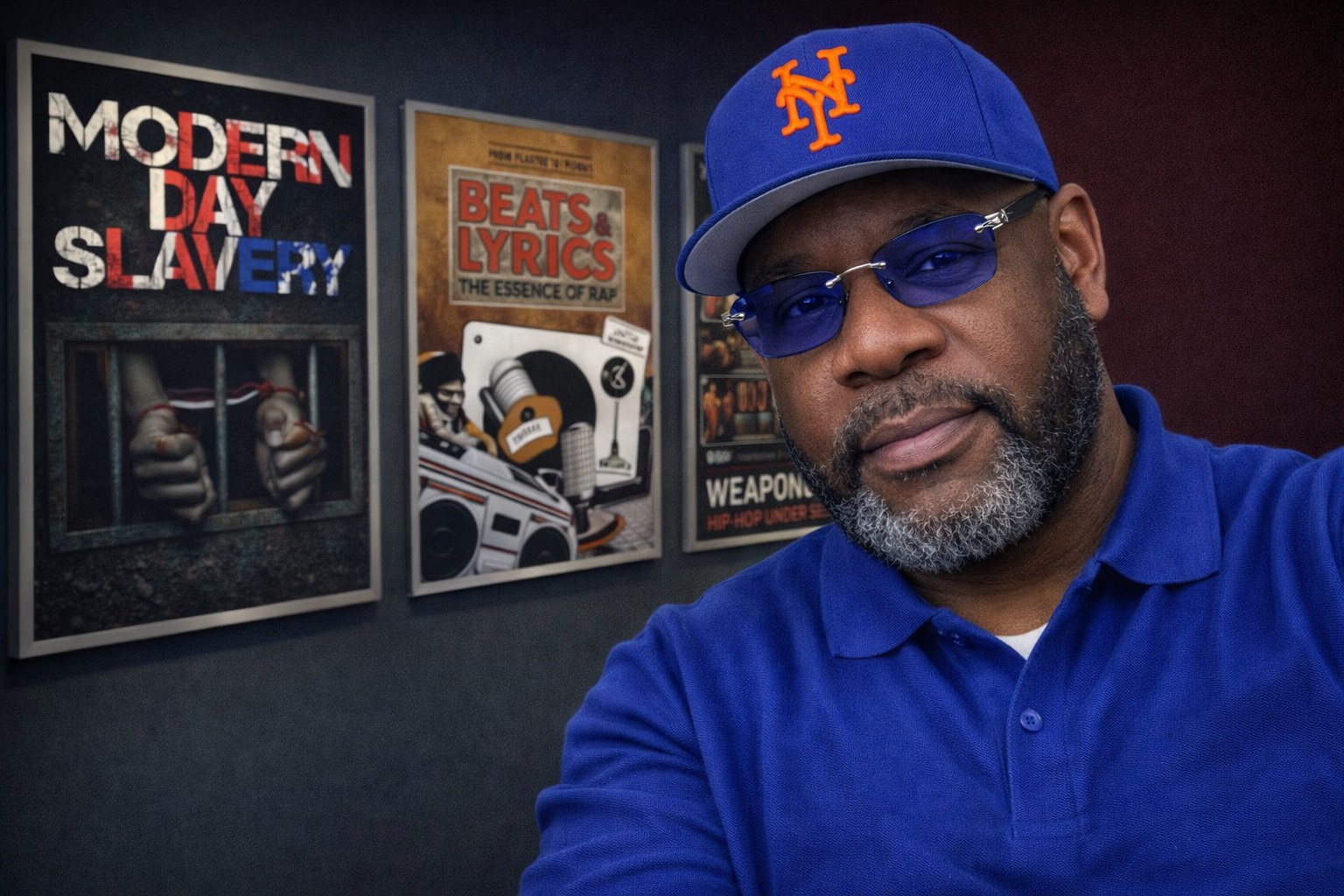By Nvasekie Konneh
Fatoumata Nabie Fofana is a Liberian journalist, writer, blogger, and communication specialist with many years of experience. She’s the former editor of the Daily Observer, one of the oldest newspapers in Liberia. She’s the creator of the blog Mousso d’Africa, Mandingo words for Woman of Africa. In her blog posts and other writings, she documents the experiences of women during the wars in Liberia, Guinea, Ivory Coast and Sierra Leone. Her first book, Sadjio was published in 2021. Now, her next book, Soulless is set to be launched in the coming weeks. Recently, she granted this interview and below is the excerpt of our conversation.

Nvasekie N. Konneh: From a journalist, to a writer, how will you describe yourself to people who don’t know you?
Fatoumata Nabie Fofana: I’m Fatoumata Nabie Fofana, a mom, a writer, editor, an author, and a seasoned communications strategist. I was born in Zwedru, Grand Gedeh County, Liberia. I went to high school in Cape Coast, Ghana. I earned a master’s degree in management from the University of Maryland Global Campus. Currently, I work for Philadelphia’s City Government as Web Content Manager and Digital Editor.
My dedication to journalism has earned me numerous international awards. My writing amplifies the voices of voiceless, transforming lives with stories of resilience and hope. I have been featured on prominent platforms such as Save the Children and the United Nations. In 2012, I became Liberia’s first female senior editor at the Liberian Observer Corporation (publisher of the Daily Observer newspaper). I am an award-winning journalist and published author with a passion for collaboration and creativity.
NNK: Few years ago, you wrote your first novel, Sadjio. Now you are about to launch your second book, Soulless. What sets these two books apart?
FNF: There is a great deal of difference between both books. SADJIO discusses gender inequality, commodification of women’s bodies, and the ongoing struggles women face in traditionally and culturally blended societies. My inspiration for SADJIO came from the experiences of women in my family and community, especially those who felt pressured to suppress their dreams.
With SOULLESS, I illustrate the strength of the human spirit and the power of resilience in the face of adversity. SOULESS delicately untangles the emotional threads of losing a mother and the harrowing journey of healing and self-discovery that follows. It was inspired by Mom’s death on June 10, 2019. The book is a reminder that life never stops and that even in the darkest of times, there is still light to be found.
While SADJIO is a call to action for inclusion at all levels, SOULLESS is a beacon of hope for those navigating the murky waters of grief, reminding them of the resilience of the human spirit, and the hope that exists in the midst of tragedy. This story illustrates the power of defiance, the courage to embrace change, and the transformative nature of grief.
NNK: For many people, Sadjio is a groundbreaking novel in the sense that it’s the first time that a voice from the Liberian Mandingo female experience is portrayed in a literature in the Liberian setting. How much of a deal is that to you and your readers?
FNF: It’s a huge deal, especially since women from my ethnic or cultural background always have to outwork themselves to prove their relevance. We have to work twice as hard to be heard. SADJIO is a testament to our ability to tell our own stories, write our own narratives, break down stereotypes, and be the change we want to see. It’s a platform for women to celebrate their power and be heard.
NNK: When you talk about women or women’s experience, do you talk about it based on traditional African cultural values or from western feminist cultural values?
FNF: I speak from the perspective of African culture, where women and girls still have only one right…the right to remain silent. I remember the numerous obstacles I faced when I first started reporting for the Daily Observer. Not only was I attacked for my gender, but also for my ethnicity, religion, and cultural background. Despite my academic, intellectual, and writing abilities, I was called “incompetent” simply because I am a Muslim woman, a Mandingo. My male-dominated environment caused me even more emotional trauma when I became senior editor in 2012. It’s a good thing I was not deterred from my goal by gender or ethnic biases. I was challenged instead to demonstrate that Liberian women, especially Mandingo women, are capable of standing out from the rest and achieving outstanding results when given the chance.
NNK: You have been a journalist for many years. What really motivated you to go the route of storytelling in the form of a novel?
FNF: While journalism is a powerful way to inform and educate, storytelling in the form of a novel allows me to explore the depths of human imagination and create vibrant worlds that transcend the limitations of reality. It gives me the freedom to craft compelling characters, intricate plots, and thought-provoking themes, ultimately offering readers an immersive and transformative experience.
NNK: Can we say that even though Sadjio is a fiction but that it’s somehow autobiographical, based on some of your own life experiences as a child growing up in Liberia?
FNF: SADJIO is partially reimagined based on my personal experiences and stories from my family and community. Incorporating personal experiences into fiction added depth and authenticity to the story of Sadjio. Said differently, while SADJIO may not be a direct reflection of my own life, elements of my childhood experiences in Liberia have influenced the narrative, lending a sense of familiarity and emotional resonance to the story.
NNK: Do you have any plan to launch the books in Liberia in the future?
FNF: There is definitely a plan to launch the books in Liberia. I am currently working on the logistics of getting the books into the country. I’ll keep you posted.
NNK: Since the stories of Sadjio are also set in places in Guinea and Cote D’Ivoire and those happen to be French speaking countries, do you think you could translate into French for French readers?
FNF: There is a plan for that, but nothing is set in stone yet.
NNK: How much motivation did you get from your first book that encouraged you to write the second book, Soulless?
FNF: The success and positive responses I received from my first book gave me an incredible boost of motivation to continue writing. Seeing how my words resonated with readers inspired me to dive into the writing of my second book, Soulless, with even more passion and dedication.
NNK: From your long career as a journalist and now as a writer, what have been some of the obstacles you have to face and overcome?
FNF: Throughout my career as a journalist and writer, I have encountered numerous obstacles that have ultimately shaped my career and personal growth. These challenges have pushed me to develop resilience, adaptability, and problem-solving skills, allowing me to become a more versatile and skilled professional.
NNK: How have you been able to navigate through the ethnic and religious barriers in Liberia?
FNF: Having a fearless attitude. Resisting societal pressure. Taking on every assignment that came my way. Seeking constructive criticism and working harder than I ever imagined.
NNK: Sometimes writers get in trouble for talking about issues that others consider as taboo. Sometimes you may run into trouble with either your community members or members of your immediate families. Have you experienced anything like that?
FNF: Yes, I have encountered situations where discussing taboo topics in my writing caused controversy. And that’s normal. Navigating sensitive subjects can be challenging. However, it’s critical to remember the power of open dialogue and the potential for growth and understanding that can come from addressing these issues. I find it helpful to approach sensitive topics with empathy and open-mindedness. I choose my words carefully, focusing on facts and evidence.
NNK: Even if you focus on facts and evidence, some may find problem with it. They will rather no one should talk about those issue such as the negative experience Sadjio had in Monrovia?
FNF: Avoiding such discussions can hinder progress and growth. We can identify areas for improvement, find solutions, and work towards creating a more inclusive and positive environment for everyone if we openly discuss and learn from these “sensitive” issues.
NNK: Liberia is not much of a literary society compared to many other countries. What will you suggest to improve the Liberian literary culture in terms of promoting Liberian books?
FNF: To improve Liberia’s literary culture and promote Liberian books, it is crucial to focus on education. Implementing comprehensive literacy programs in schools, organizing author visits, organizing book fairs, and encouraging reading will help. Forming book clubs and conducting writing workshops can all play significant roles in fostering the love for literature and nurturing the next generation of Liberian writers and readers.
NNK: What’s your final words?
FNF: Don’t miss my captivating novel about Manatou Lahai’s courageous journey to find healing, redefine her identity, and grasp a second chance at life. Anyone who has experienced loss in any form can relate to SOULLESS. Whether you’ve lost someone, a job, or something material, your story is woven into this story of rebirth and redemption.
About the Author: Nvasekie Konneh a Liberian writer and author of three books, “Going to War for America,” The Land of My Father’s Birth,” and “The Love of Liberty Brought Us Together,” a collection of poems and essays. He is a contributing writer to the on-line Liberian literary magazine. He also contributes articles on African arts, cultures, and politics to several newspapers in Liberia as well as in the US, including Black Star News in New York City. In 2014, he produced two parts documentary on ethnic and cultural diversity in Liberia which has had rave reviews on Youtube as well as on local television stations in Liberia. Nvasekie Konneh holds BA in Comparative Literatures with emphases on African, African American and Caribbean literatures from the Union Institute & University in Cincinnati, Ohio. He also holds a Master’s degree in Communication and Media Studies from the West Chester University in West Chester, Pennsylvania. He can be reached at [email protected]






